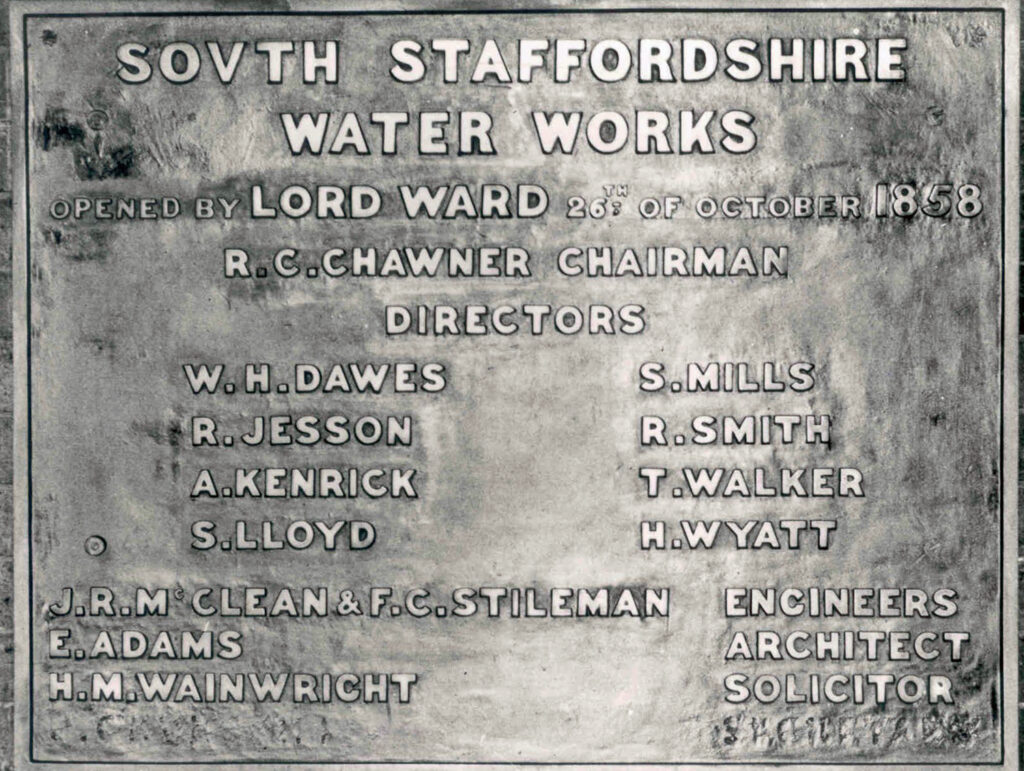In the Black Country, an area of rapid industrial growth in the 18th and 19th centuries, the problem of finding sources of uncontaminated water was exacerbated by the ruthless nature of the mining for coal, ironstone, limestone and fire clay, which was carried out on a large scale. To compound the problem the Black Country was without an organised system of public water supply and what natural sources of water existed had been heavily polluted by neglect and intense industrial activity.
Water supply in the Black Country, an area which has no major rivers, was obtained from local wells (which were often badly polluted), canals or water that had been pumped from mines in the area. In the 18th and 19th centuries it was said that the average life expectancy in the Black Country was a mere 23 years. To compound the problem, Cholera arrived in Britain in the early 1830s and spread rapidly, causing epidemics in 1832 and 1849 which would claim 10,000 lives in the Black Country alone.
This was the situation when a group of public-spirited men, including the Earl of Dudley, met in 1852 to consider what to do to remedy the situation.
John Robinson McClean (1813-1873), a well-known civil engineer, railway contractor and director in the South Staffordshire Railway, was the main driving force and persuaded some of his fellow South Staffordshire Railway directors, together with local business men such as Richard Croft Chawner (who would become the first chairman of the new waterworks company), to promote a bill in parliament to form the South Staffordshire Waterworks Company.

Powers to authorise the formation of the South Staffordshire Waterworks Company were granted by Act of Parliament - the South Staffordshire Waterworks Act (1853) - which authorised the Company to supply 250,000 people in the Black Country, spread over an area of some 75 square miles, with “a more ample supply of pure and wholesome water”. The Company was authorised to supply water to the industrial towns of Walsall, Wednesbury, Darlaston, Bilston, Sedgley, Tipton, West Bromwich, Rowley Regis, Dudley, Oldbury and others, as well as Lichfield.
Advice was sought from John McClean, and several proposals were considered before it was decided to adopt a scheme to supply “fresh” clean water from impounded streams and springs in the vicinity of Lichfield. Located some distance to the north east of the Black Country, Lichfield was in an area unaffected by the ravages of industrialisation.
The Sandfields pumping station was formally opened by the Earl of Dudley in 1858, and Walsall and Wednesbury received the first supplies of water. A year later in 1859, Darlaston received a water supply, followed by Tipton and West Bromwich in 1860. By 1869 some 20,000 houses were being supplied.
The South Staffordshire Waterworks Company would grow to become one of the largest water supply companies in England and Wales. One hundred years later the sole source of supply, in 1858, had been augmented by a further 27 primary pumping stations abstracting underground water, or pumping treated surface water to supply.
